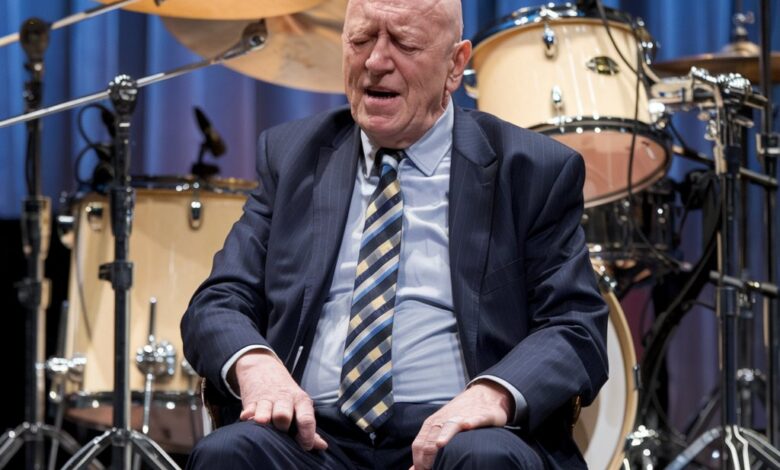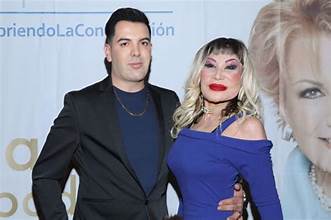Phil Collins Suffering Health Issues & No Longer Able to Play Drums

Phil Collins, the iconic British musician, has long been a household name, not just for his soulful voice but also for his unmatched drumming skills. However, Phil Collins suffering health issues & no longer able to play drums has become a sad reality for both him and his fans. Once known for his dynamic live performances and his powerful drumming, Collins has had to come to terms with a situation where performing the way he once did is no longer possible. This article explores the impact of his health struggles and how they have changed the trajectory of his musical career.
Table of Contents
The Struggles Begin: A Drummer in Pain
The story of Phil Collins suffering health issues & no longer able to play drums began several years ago, with a back injury that changed everything. In 2015, Collins faced a debilitating spinal injury that resulted in constant pain and limited mobility. What started as a physical setback quickly escalated into a series of complications that affected his ability to walk, move freely, and most tragically, to play the drums—the instrument he is most famous for.
Collins’ drumming style was known for its intensity and complexity, and it became an integral part of his identity as a performer. Yet, due to nerve damage and chronic pain, Collins gradually lost the ability to drum in the way he once could. His left hand, in particular, was affected by the injury, making it difficult for him to grip his drumsticks, let alone execute the intricate beats that fans had come to love.
A Drummer No More: The End of an Era
In interviews, Collins has been candid about the difficulties he faces as a result of his health issues. He revealed that he can no longer play the drums at the level he once did, acknowledging that Phil Collins suffering health issues & no longer able to play drums was something he had to accept. This was an emotional realization for Collins, whose drumming had been a defining feature of his career, both with Genesis and as a solo artist.
The turning point came in 2017 during his “Not Dead Yet” tour, which was meant to mark his return to the stage. Although the tour was a success and crowds were thrilled to see Collins perform again, it was immediately apparent that something was missing. Collins was no longer behind the drum kit, and instead, his son, Nicholas Collins, took over as the drummer for the live shows. While Nicholas proved to be a talented substitute, fans couldn’t help but feel the bittersweet absence of Phil’s own drumming. For many, it symbolized the end of an era.
A Change in the Spotlight: Phil as a Frontman
Even though Phil Collins suffering health issues & no longer able to play drums was a painful truth, Collins found a way to adapt to his new reality. Rather than retiring from music altogether, he embraced a new role as a frontman. His powerful voice, which had captivated millions, became the focal point of his performances. Although the dynamic drumming was missed, Collins proved that his talent extended far beyond his percussion skills.
In his later performances, Collins would sit comfortably in a chair, singing and engaging with the audience, but without the familiar motion of drumming. His son Nicholas, who had grown up around his father’s music, continued to drum, keeping the essence of the sound alive. While this change was heartbreaking for Collins, it also reflected his resilience and his unwavering love for music, even when his physical abilities were no longer the same.
The Emotional Impact of Losing His Drums
For an artist like Phil Collins, whose career was built on drumming, Phil Collins suffering health issues & no longer able to play drums was not just a physical setback but an emotional one. Drumming had been his primary mode of expression for decades, and the loss of this ability affected him deeply. In interviews, he spoke about how difficult it was to accept that his body could no longer do the things it once did so effortlessly. The emotional toll of this realization was immense, especially as his fans were also mourning the loss of that signature Collins drum sound.
However, Collins has shown remarkable resilience. While he may no longer drum, his dedication to his music and his legacy remains unwavering. He has adapted his performances to focus on his strength as a vocalist and has embraced his new role as a musical figurehead.
What’s Next for Phil Collins?
Despite the challenges that come with Phil Collins suffering health issues & no longer able to play drums, the musician has not retired from the public eye. His health may have changed his ability to perform, but it has not diminished his presence in the world of music. He remains an influential figure, celebrated for his songwriting, singing, and his contribution to the music industry.
Fans around the world continue to support Collins, eager for any new releases, whether in the form of new music or live performances. Even though his drumming career has ended, Collins’ legacy as one of the greatest musicians of his generation is firmly intact. His health struggles may have changed the way he interacts with his audience, but his artistic voice continues to resonate.
Also Read: Guia Silent Hill Geekzilla: A Comprehensive Guide
A Legacy That Transcends Drumming
Ultimately, Phil Collins suffering health issues & no longer able to play drums has not overshadowed the incredible legacy he leaves behind. His influence on the music world, particularly as a drummer, is immeasurable. From his groundbreaking work with Genesis to his solo hits like “In the Air Tonight,” Collins’ drumming was foundational to the sound of multiple generations.
Though it’s sad to think of a world where Collins cannot play the drums anymore, it is important to recognize that his legacy as a musician goes far beyond any single instrument. His contributions to rock, pop, and progressive music will continue to inspire and resonate for many years to come. The end of his drumming career marks a significant moment in music history, but it is only a small part of a much larger story.




